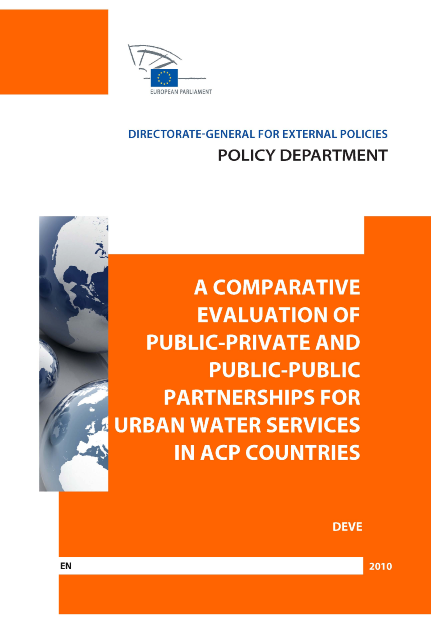
This study evaluates the comparative advantages of PPPs and PuPs in urban water services. Based on literature analysis and case studies, past performance of PPPs and PuPs is reviewed against several criteria. Lessons are then identified regarding the barriers and enablers which determine the success of partnerships, and the kind of support donors could usefully provide. The study concludes that while the main determinant of performance is not public or private management but policy, institutions, finance and regulation, there are notable differences between what PPPs and PuPs can offer. In the right circumstances the private sector can improve in efficiency and management, but at high costs. PuPs generally have lower costs and greater focus on capacity building and equity, and have the potential to support more holistic approaches to urban services and the water cycle. Partnerships with local actors can also improve services by allowing more flexible approaches to service provision to meet the needs of different households. The involvement of civil society and community groups in particular often helps to improve services for poor households. A key conclusion is that governments should have a choice of different partnership options and the ability to end failing partnerships.
Resource collections
- Coordination
- Prioritisation
- UN Habitat - Urban Response Collection
- Urban Response - Urban Crisis Preparedness and Risk Reduction
- Urban Response Collection - Community Engagement and Social Cohesion
- Urban Response Collection - Economic Recovery
- Urban Response Collection - Environment and Climate Change
- Urban Response Collection - Housing, Land and Property
- Urban Response Collection - Urban Crisis Response, Recovery and Reconstruction
- Urban Response Collection - Urban Resilience